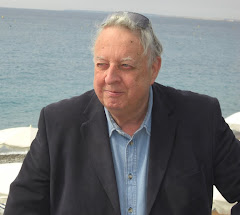Paganini's first violin concerto is a
virtuoso work, but with many lovely themes and many highly lyrical
moments. For anyone who loves violin playing, it's a must (when
played by a truly expert violinist). My three-star list (out of the
45 recordings I possess) comprises: Leonid Kogan, Francesca Dego,
Philippe Hirschhorn, Viktoria Mullova, Michael Rabin, Nemanja
Radulovic, Akiko Suwanai (Moscow, July 1990). Kogan, Mullova and
Rabin are very full-blooded Russian performances, very macho. Rabin
loses points for a too-close recording, and for savage cuts in both
the first and final movements (though not as savage as the versions
by Kreisler or Wilhelmj both of whom re-orchestrated the orchestral parts
and amputated the second and third movements of the concerto).
Radulovic has a bit too much Radulovic and not enough Paganini, for
my taste.
The latest CD to arrive on my player is
one by Ning Feng, with the Asturian Symphony Orchestra. Very
well recorded (listened through headphones, since the violinist often
plays pianissimo and is not recorded prominently). The Asturian
orchestra sounds as if the players are thoroughly enjoying
themselves, playing with the kind of gusto of an Italian opera orchestra
and brass band that Paganini was obviously expecting. Ning Feng's
contribution is remarkable, and he gets my three stars. He is a true
virtuoso, but also a highly elegant virtuoso -- much as
Paganini may have been (Niccolò was neither German, nor Russian, nor
even Israeli). At the end of his traversal of Paganini's concerto, I
wanted to cheer. Ning Feng's performance on this CD is now my “if
you only have one version” choice.
Ning Feng started in my estimation a
couple of years ago as “a good virtuoso violinist”. His recording
of the Bach unaccompanied sonatas and partitas then had him soaring
high in my estimation, and with this Paganini recording, he soars
even higher. One day he may even beat his fellow Chinese violinist,
Tianwa Yang, in Sarasate's music. With his elegant and intelligent
playing, Feng may well go on to superb Mozart and Beethoven (he lives
in Berlin, so is obviously in a good position to also imbibe the
German musical tradition).
